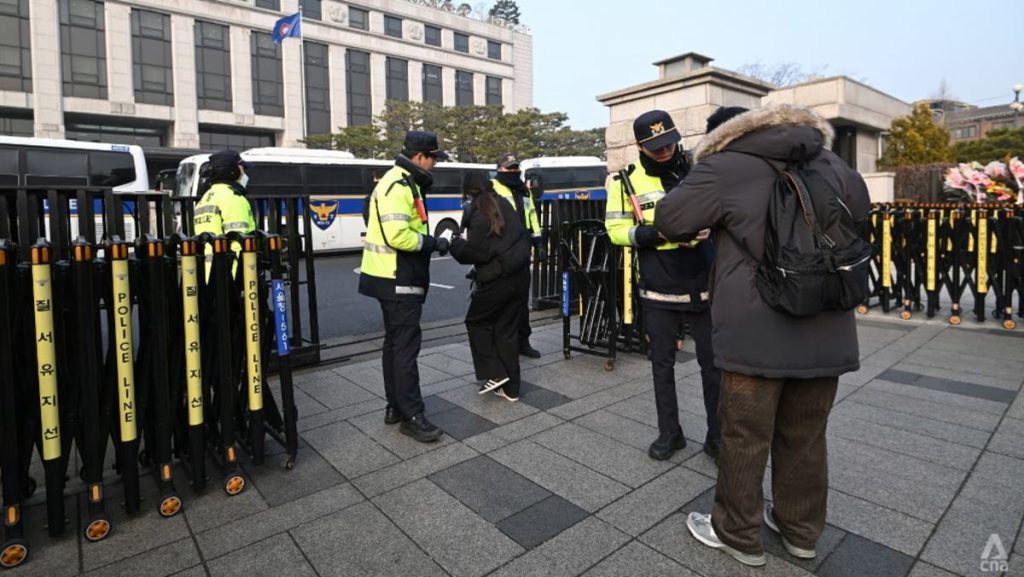The unfolding political drama in [Country Name – context required] has reached a fever pitch with the recent court appearances and subsequent protests surrounding impeached President Yoon. His decision to finally appear before the Constitutional Court, after weeks of resisting arrest and defying a criminal investigation, has ignited a firestorm of controversy, dividing public opinion and raising critical questions about the rule of law, the integrity of the judicial process, and the future of the nation. While Yoon’s supporters view his actions as a courageous stand against an illegitimate political persecution, critics argue that he is cynically manipulating public sentiment and undermining the very institutions he swore to uphold. This complex situation demands a closer examination of the key players, their motivations, and the potential consequences of this escalating conflict.
At the heart of the matter lies the impeachment trial itself. Yoon’s appearance in court, while legally significant, is widely perceived as a calculated move to galvanize his base. By presenting himself as a victim of political machinations, he aims to rally public support and pressure the Constitutional Court judges. Legal experts like Kim Nam-ju argue that Yoon’s personal testimony holds little substantive value beyond influencing public perception, as his legal representatives could effectively communicate the same arguments. However, the court’s ability to directly question Yoon carries legal weight, enabling the judges to assess his demeanor and clarify ambiguities firsthand, potentially impacting their final decision. This delicate balance between legal procedure and political theater underscores the precarious nature of the impeachment proceedings.
Further complicating the situation is Yoon’s steadfast refusal to cooperate with the criminal investigation into his alleged declaration of martial law. This refusal, coupled with his weeks-long resistance to arrest, raises serious concerns about his respect for the legal system. Experts suggest that this defiance could significantly undermine his defense in the impeachment trial. By obstructing the investigation and declining to testify, Yoon appears to be prioritizing his personal narrative over adherence to legal norms. This defiance, as Kim Nam-ju points out, portrays a disregard for the established legal framework, potentially influencing the court’s perception of his credibility and integrity.
The political backdrop to this drama is equally crucial. Despite winning the presidency in 2022, Yoon faces a hostile parliament dominated by the opposition Democratic Party, which gained a majority in the legislative polls last year. This political reality fuels the narrative of a partisan witch-hunt, providing Yoon’s supporters with ammunition to claim that the impeachment proceedings are politically motivated rather than based on legitimate concerns. The Democratic Party, in contrast, celebrates Yoon’s arrest as a necessary step to restore constitutional order, framing his actions as a threat to democracy. This starkly polarized political landscape exacerbates the tensions and complicates the search for a just and equitable resolution.
The protests that erupted following the court’s decision to extend Yoon’s detention vividly illustrate the depth of public division. Hundreds of Yoon’s supporters, fueled by his rhetoric of resistance and perceived injustice, clashed with police outside the court building. This public display of anger and frustration underscores the powerful emotional currents running through the country. While Yoon’s supporters view him as a defender of their interests, his opponents see him as a threat to democratic institutions. These contrasting perspectives highlight the challenge of navigating the complexities of this political crisis and finding a path towards reconciliation and stability.
The future of [Country Name – context required] hangs in the balance as the impeachment trial unfolds. The Constitutional Court’s decision will have far-reaching implications, shaping not only the country’s political landscape but also public trust in its institutions. The escalating tensions between the executive and legislative branches, compounded by the deep divisions within society, pose a significant threat to the nation’s stability. The outcome of this trial will be a crucial test of the resilience of [Country Name]’s democratic processes and its ability to overcome political polarization. Moving forward, the focus must be on upholding the rule of law, ensuring a fair and impartial judicial process, and fostering dialogue to bridge the deep divides that threaten to tear the country apart.

